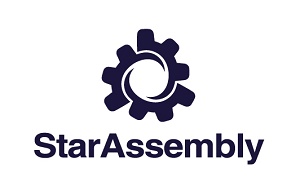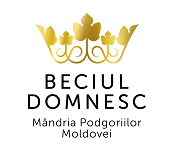OBJECTIVE
The objective of this research activities ethics code is to prescribe the details on the research activities ethics committee of SIAR (hereinafter referred to as "committee") organization and operation, as well as the necessary matters, for the establishment of research ethics related to academic activities, such as publication, publishing, dissemination or presentation in the Society of Automotive Engineers of Romania – SIAR activities (congresses, conferences, journals, papers, seminars, symposiums, workshops etc.) or the prevention, verification, and punishment on the research publication misconduct in accordance with Romanian national regulations.
APPLICATION
This code shall apply to the society's Journals, proceedings of the SIAR congresses and conferences, materials for workshops and symposiums, collections of papers of the branches' symposiums, etc., and the society's other publications and overall academic activities.FUNDAMENTAL PRINCIPLES
All activity of SIAR members and all persons involved in the scientific activities / events of SIAR is based on the following fundamental principles:The principle of integrity
The principle of integrity – pursuing the activity with honesty and collegial spirit, in accordance with the other ethical principles.
The principle of autonomy
The principle of autonomy – the freedom to choose individually the research topics, in correlation with his / her competencies and the desire for self-improvement.
The principle of dignity
The priciple of dignity – carrying out research activity with dignity, with respect for the human being as a rational being, of all living beings, nature and the environment.
The principle of advantage
The principle of advantage – promoting research projects that benefit human society, in order to obtain an optimal result by carefully weighing the results, damages and related risks.
The precautionary principle
The precautionary principle -the need to clarify / understand the foreseeable results of the research, respectively the associated risks.
The principle of protection of copyright and intellectual property
The principle of protection of copyright and intellectual property – achieving the framework for the protection of copyright and intellectual property according to the regulations specific to the research-development activity.
ROLES AND RESPONSIBILITIES
The researcher
- The researchers shall conduct research based on facts in an honest and transparent way, and they shall publish new academic results, so as to contribute to academic development.
- The researchers shall, when quoting their own or other people's writings, accurately disclose the sources thereof, so as to recognize and respect the previous researchers' achievements.
- The researchers shall, when publishing the research results, accurately disclose researchers’ affiliation and position (author information) to enhance the reliability of the research.
Author
- Authors shall make substantial contributions to the conception or design of the work; or the acquisition, analysis, or interpretation the data for the work.
- Authors shall draft the work or revise it critical for important intellectual content, and approve the final version to be published.
- Authors shall agree to be accountable for all aspects of the work in ensuring the questions related to be accuracy or integrity of any part of the work are appropriately investigated and resolved.
The editor-in-chief, editors, and reviewers
- The editor-in-chief, editors, and reviewers shall review works in a fair and objective manner without prejudice, and they shall not disclose or misuse the information acquired in the process of reviewing.
- The editor-in-chief and editors shall monitor the unethical acts of the researchers and reviewers.
ACTIONS FOR MISCONDUCTING PUBLICATION OF RESEARCH RESULTS
“Plagiarism” refers to the acts of using the whole or a part of other people's research contents without disclosing or quoting the sources thereof, or the acts of partly changing other people's authored works and using them.
“Fabrication” refers to the acts of falsely manipulating, modifying, or distorting one’s own or other people’s research materials and research results.
“Falsification” refers to the acts of arbitrarily changing the research materials and research results, and distorting the research contents.
“Duplicate Publication” refers to the acts of publishing the same details on two or more journals.
“Unjustified Authorship” refers to the acts of placing someone, who has not contributed to the research achievements, on the list of authors in the research.
Other actions that can cause damage to the research ethics may be included in the scope of research publication misconduct.
ORGANIZATION OF THE RESEARCH ETHICS COMMITTEE
The Society of Automotive Engineers of Romania shall organize the Research Ethics Committee (hereinafter referred to as, "committee") to monitor and verify the research ethics and sanction unethical acts.
The committee shall be comprised of one chairperson and four members. The chairperson, which is a mandatory position, shall be the Editor in chief of the SIAR Journals. The chairperson and the members are elected by the board of SIAR directors.
The tenure of the chairperson and members shall be one year from January 1 to December 31, and they can serve consecutive terms.
THE OPERATION OF THE COMMITTEE
The committee shall perform the following activities:
- Establishment and promotion of the research ethics;
- Prevention and protection against research misconduct;
- Review and vote on research misconduct;
- Decision of punishment on the malfeasant and reporting the results to the board of directors;
- Other details related to the improvement and promotion of the research ethics.
The notification of the Committee is made by the SIAR office based on the written information received from reviewers, readers, authors, auditors, evaluators, institutions, authorities, etc. Anonymous information does not cause the committee to be notified. The committee may notify itself.
The committee shall be convened out of necessity by the chairperson, shall be opened up by a majority attendance, and shall pass votes by two-thirds approval of the attending members.
The committee shall inform its resolutions to the suspect of misconduct (defendant), thereby requesting the submission of an explanatory plea from the suspect, and the defendant may submit his or her plea within 14 days.
The committee shall review the plea received from the suspect and give a final deliberation on it, provided that the submission of the explanatory plea from the suspect is limited to one time and, if necessary, the committee may hear directly from the suspect.
The results of the committee's deliberation shall be reported to the SIAR board of directors to make a final decision.
The committee shall be convened and held, and the research misconducts shall be verified according to the procedure set for this situation by the Romanian Education Ministry.
The meeting details of the committee shall, in principle, be kept confidential.
INFORMING AND NOTIFYING OF THE RESEARCH MISCONDUCT
Informing a research misconduct must be submitted in document with the related materials attached in the form of five W’s and one H (Who; What; When; Where; Why; How).
The committee must report to the board of directors after reviewing the reported details within 3 months after being reported.
The details of the final decision at the board of directors shall be notified to the informant and the defendant within 10 days. This can be notified within the set period of time through the SIAR’s homepage.
The details must not be opened to the public before the investigation of the research misconduct is finalized.
PUNISHMENT FOR THE RESEARCH MISCONDUCT
Against the defendant, whose research misconduct has been confirmed, the committee may take into account the gravity of such misconduct, and select an appropriate punishment from among the following punishments:
- Cancellation of society publications on the corresponding published work
- Prohibition of contribution in the SIAR journal for at least three years
- Prohibition of publishing in the conferences of the SIAR for at least three years
- Notification of the details of misconduct affiliated with the malfeasant
- Deprivation of society membership for a set period of time
- Notification of national authorities with responsibilities in the field of human resources in scientific research / university education.




